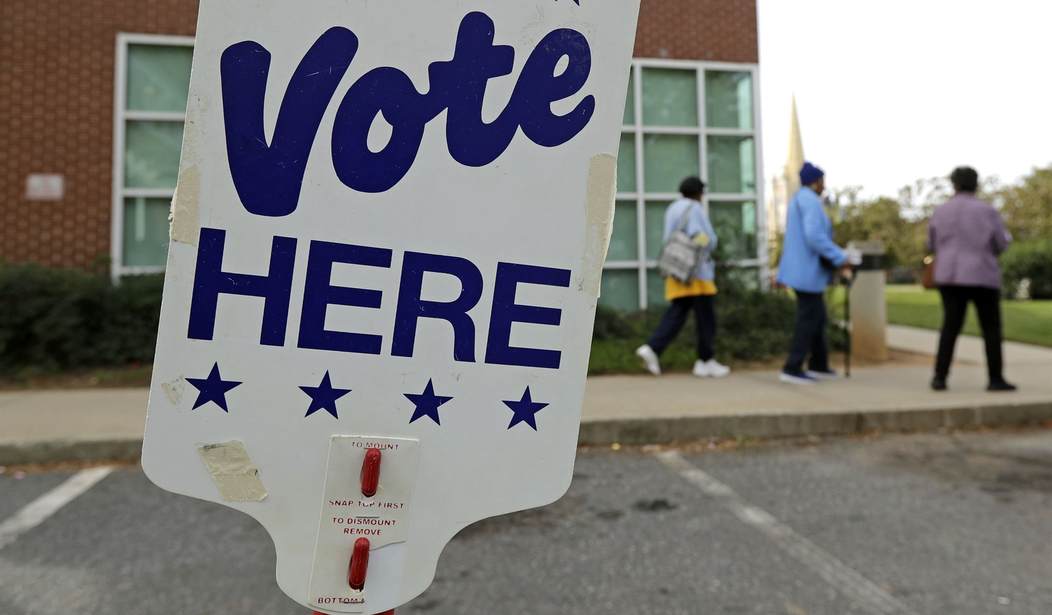“Polling is broken,” Robert Cahaly of Trafalgar Group told NRO’s Dan McLaughlin recently. Despite general agreement among pollsters that Cahaly’s statement is accurate, it appears that most in the polling community have given up trying to figure out where they’re going wrong.
They’ve made a few changes in methodology — a tweak here and there in how they approach potential voters — but the essence of their polling remains where it was in 2016.
Then, as in 2020, the problem wasn’t so much in not picking winners and losers correctly. The problem was the difference between the reality of the election numbers and the margin of victory predicted by the polls.
The polling average in 2020 predicted a margin of victory for Biden of 8 points. Obviously, it was nowhere near that number. And there were several Republican Senate candidates that were sold short by most of the polls.
The same phenomenon may be happening in 2022. And the problem may be similar to what pollsters missed in 2020. What they missed was the “shy Trump voter” who isn’t really “shy” but rather highly suspicious of pollsters in the wake of the January 6 hearings.
Celinda Lake, a prominent Democratic pollster, told POLITICO that her firm, Lake Research Partners, is working hard to get the right balance of voters in its samples — but that a certain segment of Trump voters is increasingly elusive, especially as the former president’s exploits have preoccupied the headlines lately.
“It was less [of an issue] for a long time,” Lake said. “It looks to us like it is getting to be more of a problem recently, with the Mar-a-Lago thing, with his candidates winning a lot of these primaries, with the Jan. 6 committee.”
PJ Media’s Matt Margolis had an excellent interview with Trafalgar’s Cahaly, who notes the growing impatience with pollsters. It’s not quite a rule of thumb, but Republican/Trump voters are far more reluctant to talk about their opinions than Democrats.
Rather than polls, there are other indications of the direction the election is headed. The New York Times numbers guy Nate Cohn directs our intention to a surprising omen for 2022.
It can be difficult to discern these kinds of subtle shifts in the national mood, but Google Search trends offer a decent rough measure. For the first time since the Dobbs ruling overturning Roe v. Wade, Google searches for the economy and immigration have overtaken searches about abortion. Searches for democracy or the Jan. 6 hearings have also fallen.
It’s still too early to say whether this subtle shift in the electorate’s attention will work to the advantage of Republicans. To extend the “political winds” analogy, maybe the pro-Democratic winds have subsided, yielding a relatively stable political environment that won’t do much to nudge the polls in either direction. Indeed, the polls haven’t moved much at all over the last few weeks.
But those polls that have changed favor Republicans. The data is probably too recent to refer to it as a “trend,” but when a bunch of data points converge, you have to think something is going on.
The two latest polls showing generic support for the parties favor Republicans.
But the surveys do appear to have one thing in common: They show Republicans enjoying a turnout advantage. In the CBS News poll, Republicans were five points likelier than Democrats to say they would “definitely” vote, 79 percent to 74 percent. Similarly, ABC/Post found 81 percent of Republicans “absolutely certain” to vote compared with 75 percent of Democrats.
So we have polls skewing toward Democrats but now showing some movement toward the GOP. Are the pollsters finally getting it right? Or is the Republican advantage getting larger? Taken all together, the signs point to a large Republican victory but not quite the tsunami that was possible a few months ago.
Translation: GOP wins 20-25 seats, giving them a fairly comfortable House majority, but loses 1-2 seats in the Senate largely because they are defending so many more seats.










Join the conversation as a VIP Member